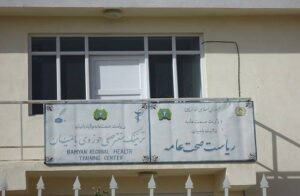.jpg)
KABUL (SW): Today, the thirteenth day of February is named “World Radio Day” by UNESCO. In most countries where radio still retains its audience, the ‘World Radio Day’ is observed annually. However, in Afghanistan, despite the fact that many people listen to the radio, this day is not celebrated.
For the first time in Afghanistan, the radio began its broadcast during the reign of King Amanullah Khan. At that time, there was only one radio station in the country while nowadays over 200 radio stations broadcast across the country.
After nearly a century has passed since the arrival of the radio in the country, still, radio is not accepted in favorable terms by many groups in Afghanistan. The Islamic Emirate of Taliban imposed restrictions on radio broadcasting, which caused inconvenience among citizens.
Despite the turmoil during the Taliban reign, radio has been the most popular broadcasting medium to improve cooperation between broadcasters, engage communities and be used as a time-pass mechanism, however, the shortages of radio were widely seen across the country.
Although, recently many cell phones with the radio apps, have solved the issue of shortages of radio devices, by connecting their headphones one can listen to their favorite program while doing other chores and hence the radio is still said to be one of the most powerful media in the country.
On the pretext of the ‘World Radio Day’, I went to the city, to interview people who are listening to the radio very often especially those drivers who are always tuned in to their favorite radio stations.
A cap driver, who introduced himself as Mohammad Agha, told that he has been driving a taxi for years in the Kabul city, and has been listening to music channels, news, and political debates over the radio every day. He said radio is an integral part of his life.
Safilluah has a radio repair shop in the city. According to him, his business is not running well, because the prices of the radio devices have dropped in the recent years due to addition of radio apps on the cell phones, and emergence of cheap radio devices in the markets, therefore, the repair of the radio devices is no more profitable as often people can purchase a new device for the cost of a repair.
On the other hand, Najib Khalwatgar, the Executive Director of NAI-Supporting open media in Afghanistan, told me that insecurity and lack of funding for the media organizations have caused more than 15 radio networks to shut down their operation in Afghanistan in the past four years only and several others have been burned to ground by the insurgents and Taliban.
ENDS





